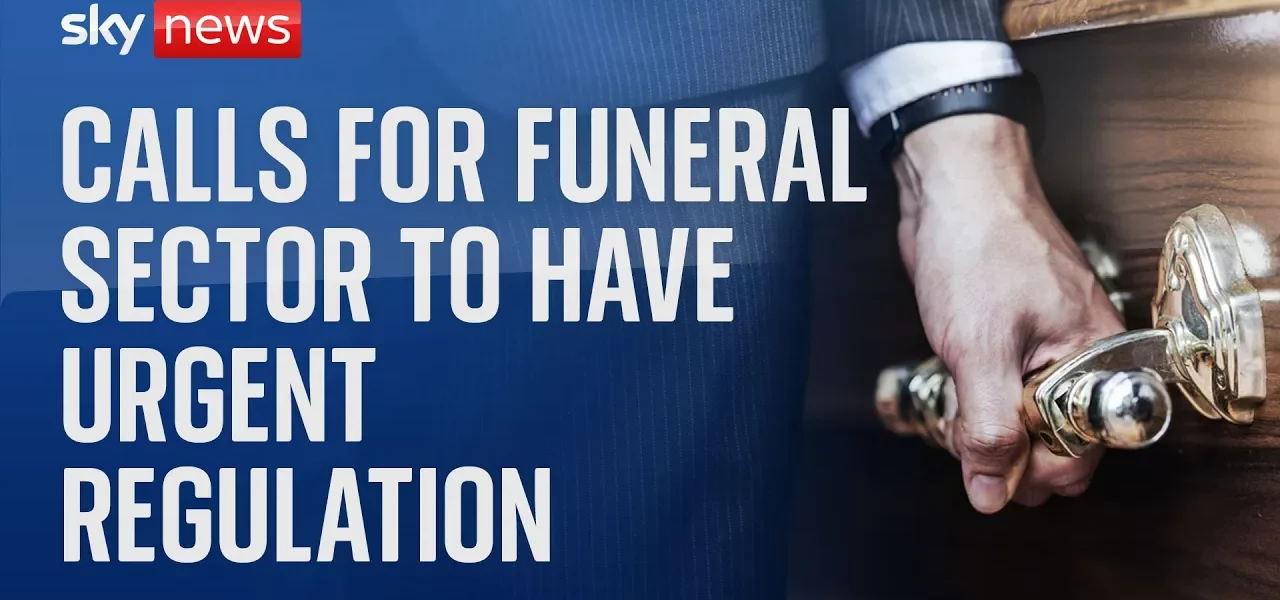Investigation into Funeral Home Practices: The Hull Incident and Beyond

This article delves into the shocking revelations surrounding funeral home practices in Hull, following an investigation triggered by heinous crimes in the industry. We explore the implications for funeral regulation and the need for oversight to ensure respect for the deceased.
Introduction
In recent months, the funeral industry has come under intense scrutiny due to a series of distressing revelations about malpractice and the treatment of the deceased. The case at Legacy Independent Funeral Directors in Hull serves as a stark reminder of the vulnerabilities within the system. The incident, involving a grieving husband who received the wrong ashes of his wife, has raised significant concerns about how bodies are handled and the lack of oversight in the funeral sector. This article aims to provide an in-depth look into the investigation, the implications for funeral home regulations, and the urgent need for reform.
The Hull Incident
In March 2023, police raided Legacy Independent Funeral Directors in Hull amid allegations regarding improper storage of bodies. The investigation was prompted by the shocking revelation that Mike Collinson received ashes he believed were those of his wife, Jean, only to later learn that her body had not yet been collected from the hospital. This incident raised numerous questions about the integrity of funeral service providers and the procedures followed in handling deceased individuals.
Client Testimony
Mike Collinson expressed his disbelief and distress when he discovered that the ashes he received were not those of his wife. He stated:
“I was absolutely shocked. I couldn’t believe that I had got a box of ashes there believing it was Jean and there was Jean still at the hospital, never even been collected.”
This statement highlights the emotional toll such incidents can take on grieving families and the urgent need for accountability in the funeral industry.
Broader Implications of the Investigation
The inquiry into funeral practices was catalyzed by the shocking crimes of David Fuller, who was found to have abused bodies in a hospital mortuary in Kent. This led to a wider examination of funeral home practices across various settings, particularly in Hull and other regions.
Failures in Oversight
One of the most alarming findings from the investigation is that the funeral industry lacks stringent oversight. Anyone can set up a funeral home, often operating from their own homes or garages, without any formal regulations or checks in place. This raises significant concerns about the quality of care provided to the deceased and their families.
Notable Cases of Malpractice
Several disturbing cases of malpractice have come to light during the inquiry:
- A Blackpool undertaker, Nigel Robinson Wright, was jailed for 17 years for posing next to naked bodies and inviting a man to have sex with a corpse.
- Instances of personal belongings of the deceased not being disposed of according to their wishes.
- Unacceptable behavior such as spitting on the deceased due to sports rivalries.
Call for Regulation and Oversight
In light of these revelations, there has been a growing consensus among professionals and advocates for the need for greater oversight in the funeral industry. Neis Kamal, mother of one of David Fuller’s victims, expressed her shock at the lack of regulation:
“I’ve used the funeral parlor three times for family relatives and I presumed that they would be regulated. It’s a shameful on the government, it’s shameful on us as a society really that we don’t honor our dead and respect our dead.”
This sentiment echoes the concerns of many who believe that the government must take action to ensure that funeral homes are held to a higher standard of care and accountability.
Conclusion
The investigation into funeral home practices, particularly in Hull, has unveiled a disturbing reality about the treatment of the deceased and the lack of regulatory oversight in the industry. The emotional impact on families, as demonstrated by the experiences of individuals like Mike Collinson, underscores the urgent need for reform. As the government considers recommendations stemming from this inquiry, it is imperative that lessons from the Fuller case and similar incidents are learned to protect the dignity of the deceased and provide assurance to grieving families. We encourage readers to stay informed and advocate for necessary changes in the funeral industry.
“`




